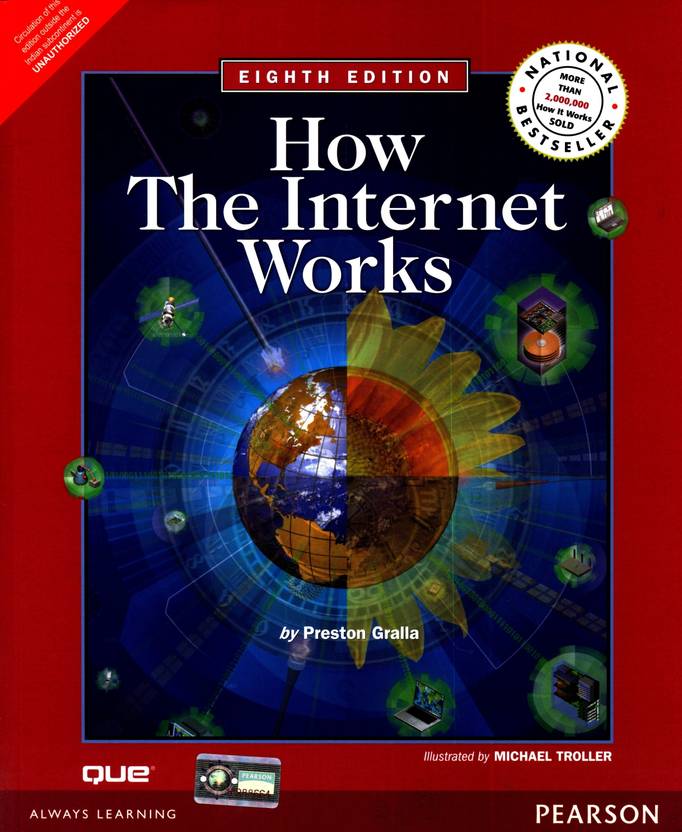How The Internet Works Preston Gralla Pdf Download

Businesses are moving beyond traditional industry silos and coalescing into richly networked ecosystems, creating new opportunities for innovation alongside new challenges for many incumbent enterprises. In September 2014, the Chinese online commerce company Alibaba Group conducted its initial public offering (IPO)—the largest ever in history. This event attracted considerable media attention, some of it naturally commenting on the changing balance of the global economy and the growing impact of digitization.
Dec 12, 1991 How the Internet Works (8th Edition) (How It Works) by Preston Gralla (2006) flag Like see review Oct 16, 2009 Nabeel rated it liked it review of another edition. Preston Gralla is the award-winning author of 17 books, including the best-selling How the Internet Works, The Complete Idiot's Guide to Buying a PC, and The Complete Idiot's Guide to Online Shopping. Download full version free pc games.
Textbook of medical biochemistry by chatterjea pdf download. Largely overlooked in the commentary, however, was another important signpost to the future. In the prospectus it compiled to describe its vision, philosophy, and growth strategy, Alibaba used one word no fewer than 160 times: “ecosystem.”.
Learn more a custom PDF of the Business Trends 2015 report. We’re all familiar with ecosystems in the natural world. The word was coined in the 1930s by British botanist Arthur Tansley to refer to a localized community of living organisms interacting with each other and their particular environment of air, water, mineral soil, and other elements. These organisms influence each other, and their terrain; they compete and collaborate, share and create resources, and co-evolve; and they are inevitably subject to external disruptions, to which they adapt together. Some view the rise of ecosystems as an opportunity for creating powerful new competitive advantage.
Noticing growing parallels, business strategist James Moore imported the concept to the increasingly dynamic and interconnected world of commerce. As he wrote in a 1993 Harvard Business Review article: Successful businesses are those that evolve rapidly and effectively. Yet innovative businesses can’t evolve in a vacuum. They must attract resources of all sorts, drawing in capital, partners, suppliers, and customers to create cooperative networks.. I suggest that a company be viewed not as a member of a single industry but as part of a business ecosystem that crosses a variety of industries. In a business ecosystem, companies co-evolve capabilities around a new innovation: They work cooperatively and competitively to support new products, satisfy customer needs, and eventually incorporate the next round of innovations. Moore’s insight was prescient—just on the cusp of the Internet era, and 15 years before the emergence of smartphones and the mobile access revolution.

Initially his concept of “business ecosystems” was embraced primarily in the community that was itself creating the transformative capabilities of connection and collaboration that enabled them—the US technology sector. It continues to be critically important in that arena. Explicitly conceived its products and services as an ecosystem that would provide customers with a seamless experience; Facebook recognized the emphasis it had to place on deliberately building its “developer ecosystem”; some analysts no longer see technology and media competition as simply between firms, but among ecosystems of firms operating in loose alliance. But the idea has now also taken root far beyond the US technology sector. Over the last few decades, driven largely by digital technologies and massively increased connectivity, the economy has been moving beyond narrowly defined industries built around large, vertically integrated, and mainly “self-contained” corporations. New means of creating value have been developing everywhere in the form of ever-denser and richer networks of connection, collaboration, and interdependence. Businesses around the world are responding.
Some view the rise of ecosystems as an opportunity for creating powerful new competitive advantage. For example, in July 2014, the CEO of Japan’s Softbank described its strategic intent as follows: “By providing all manner of services and content on (our) platforms, we are aiming to create a comprehensive ecosystem that other companies will never be able to rival.” A few years earlier, the CEO of Nokia similarly described a landscape of ecosystems that each encompass an array of players: “The battle of devices has now become a war of ecosystems.. Our competitors aren’t taking our market share with devices; they are taking our market share with an entire ecosystem. This means we’re going to have to decide how we either build, catalyze, or join an ecosystem.” Others take slightly different perspectives. South Africa’s SABMiller has made a priority of “strengthening business ecosystems” in which it participates, to the benefit of local and regional economies where it operates.